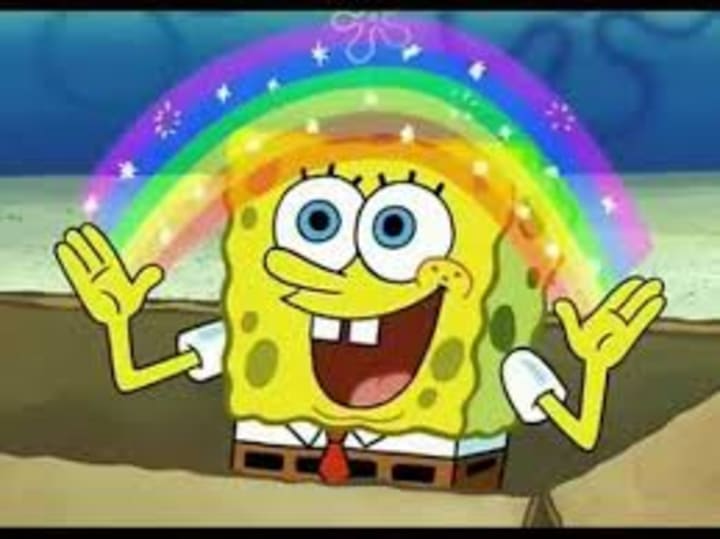A Geek Girl's Guide to Brain Skills
Eight New Ways to Study

I studied education in college, and many of my classes focused on theories and approaches teachers can use to do what they do in the best ways possible. One such theory from a psychologist named Howard Gardner promotes an idea of eight different multiple intelligences that relate to any particular student's brain skills, as I'll call them. Gardner's theory became prevalent in a time when the way people thought about intelligence and learning was changing. Teaching was like a cookie-cutter until over thirty years ago, with a one-way-fits-all sort of mentality that believed all students learned the same. But enter the 21st century and Gardner's way of thinking to bring the new mindset of a diverse education. Anybody from a psychologist to the street vendor knows everybody is different, so education should ditch the cookie-cutters and aim to teach through different means in order to reach everyone.
Gardner's multiple intelligences reflect ways the mind works with information it's given. When you experience a “light bulb moment,” like when you understand a math formula, or learn the correct spelling and definitions of vocabulary words, your brain skills most likely played a part in making it happen. Everyone has a range of strengths and weaknesses among the brain skills, making those moments when the study material clicks different for everyone. Teachers ought to strive to teach content in ways that relate to the variety of brain skills, but you can take advantage of this “trade secret” and develop your own study habits!
One place to start is Edutopia.com, where you can take a quiz and read articles to learn more about your brain skills and how to make your studying more effective and personal to you. You'll find highs and lows across the board with your results, which just shows what works better for you. And you'll even find that some of these brain skills closely relate to your favorite things! So, while you might at first be a bored band geek/fish out of water in science class, finding ways to use your musical prowess there will help you do better and also help make the most of the least interesting subjects you sit through until music class. Having something interesting to learn is the best place to start. Not everything can be that way, so at least the effort to learn it in an interesting way is the next best place to start.
Without further ado, here is a preview of Gardner's eight multiple intelligences described as “brain skills”, and what they mean for you:
Verbal-Linguistic Intelligence
Verbal-Linguistic intelligence relates to the brain processing information through reading, writing, and speaking. If this is one of your best brain skills, you likely enjoy any or all of those activities. You likely also learn more effectively by reading something in print, listening to a speech or lecture, and taking notes.

Logical-Mathematical Intelligence
Logical-mathematical intelligence relates to the brain processing information through math, symbols, and reasoning. Doing math or problem-solving in your head might not be difficult for you if this is one of your better brain skills. You might also prefer some kind of organization, which can be a big help in how you learn, study, and take notes. Graphic organizers, like outlines or concept maps, should help you understand processes and relationships among ideas.

Visual-Spatial Intelligence
Visual-spatial intelligence is like imagination. This brain skill relates to seeing things with your mind. If this is your strongest brain skill, you likely daydream or see some end result or idea in your head, like an artist or an engineer would. Visual aids and creating visual systems with highlighters, tabs, index cards, and other tools should be a big help to you.

Musical Intelligence
Musical intelligence relates to the brain's acuity with sound. Think about songs from Sesame Street or Schoolhouse Rock. Some educational television and audio supplements cater to this intelligence, so the material sticks with you best because your brain is more receptive to information presented with rhythmic or melodic qualities, and you also more easily recognize, produce, and interpret music or sound. When you study, you might listen to some instrumental music, or come up with your own song or chant to remember what you're trying to learn.


Naturalistic Intelligence
Naturalistic intelligence relates to brain skills for analyzing the natural world. You likely have interests in science if this is your better brain skill. You likely have a good eye for observing, analyzing, and deducing ideas from a bigger picture. You might watch or perform demonstrations of your study material when possible.

Bodily-Kinesthetic Intelligence
Bodily-kinesthetic intelligence relates to the brain and physical activity. You learn and remember better through movement if this is your strongest intelligence. While you may be an athlete, dancer, or actor, the same principle applies to even simpler gestures that are given a connection to something, like dancing to “I'm a Little Tea Pot”. You might come up with a way to act out something you are learning, practice with it in some way, or do something active when you need to concentrate.

Interpersonal Intelligence
Interpersonal intelligence relates to deep understanding of people and social situations. With this as your strongest brain skill, you are likely a “people person”and a good friend to many people because you build relationships, resolve conflicts, and basically understand them. You likely work well in group efforts, with a partner, or a tutor.

Intrapersonal Intelligence
Intrapersonal intelligence relates to an understanding of self. If this is your strongest brain skill, you are your own person, self-driven, and ambitious. You may or may not be a wallflower, but you likely work better solo, and you are a thoughtful person. Set goals for yourself with your schoolwork to stay motivated and reflect on your study material.

Einstein and Genius Fish
Albert Einstein once said that “Everybody is a genius. But if you judge a fish by its ability to climb a tree, it will live its whole life believing that it is stupid.” Embracing Gardner's multiple intelligences give the fish a fair chance to prove its genius in a way that works for him. In the same way, good teachers are helping you find your genius through your unique set of brain skills. They can have just as good students who know how to study, learn, and work in ways to make themselves successful. And because teachers are ditching “cookie-cutter education,” remind yourself that learning and success are going to be your own as well.

About the Creator
Katie Johns
Random blogger and published short story writer-
https://kjohns323.wixsite.com/kjswritersblock/portfolio






Comments
There are no comments for this story
Be the first to respond and start the conversation.